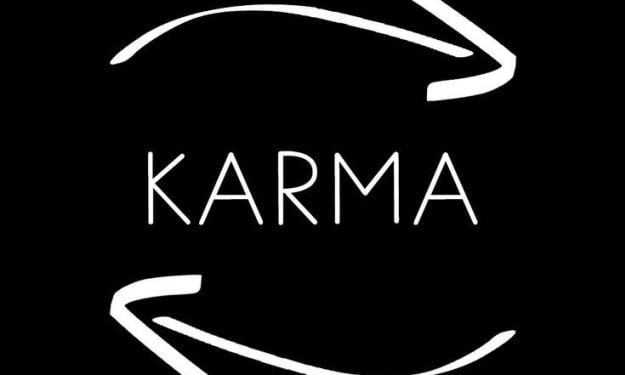
Anthony Bourdain of CNN’s Parts Unknown is dead. The chef, storyteller, and Emmy-winning host passed at age 61 on June 8, 2018.
One of my favorite Anthony Bourdain quotes is this one. "Meals make the society, hold the fabric together in lots of ways that were charming and interesting and intoxicating to me. The perfect meal, or the best meals, occur in a context that frequently has very little to do with the food itself."
Three days earlier, Kate Spade took her own life as well. Kate Spade, who grew up in Kansas City, was found dead on Tuesday in her Park Avenue apartment in New York. She was 55. Her family spoke publicly about her death—acknowledging that she faced mental health issues—even as they tried to cope with their grief.
“My daughter and I are devastated by her loss, and can’t even begin to fathom life without her,” Spade’s husband, Andy, said in a statement that was published by The New York Times. “We are deeply heartbroken and miss her already.”
Suicide is a major public health concern. Suicide is among the leading causes of death in the United States. Based on recent nationwide surveys, suicide in some populations is on the rise.
The CDC said suicides were rarely caused by any single issue.
In addition to mental health conditions and suicide attempts as risk factors, other contributing circumstances include social and economic problems, access to the means to commit suicide, and poor coping and problem-solving skills.
Suicide was the tenth leading cause of death overall in the United States, claiming the lives of nearly 45,000 people.
Suicide was the second leading cause of death among individuals between the ages of 10 and 34, and the fourth leading cause of death among individuals between the ages of 35 and 54.
There were more than twice as many suicides (44,965) in the United States as there were homicides (19,362).
The data suggests that while the majority of communities across the country experienced a significant increase in suicide deaths, some regions were harder hit than others. Middle America and the Rocky Mountain West, for example, saw some of the biggest increases in suicide rates, suggesting specific cultural and social factors like gun ownership and opioid addiction may be contributing to their high suicide rates.
Men were not only more likely to die by suicide with no known mental health condition, but they were also more likely to die by using a firearm.
In 2016, there were 38,658 firearms deaths in the United States—59 percent of these deaths were suicides.
This data, as well as the CDC’s findings, clearly indicate that before we can successfully address the nation’s increasing suicide rates, we must discuss certain structural factors: This includes gun control and safety, economic recovery and access to mental health care.
If you’re calling on mentally ill people to "get help," please consider the complete lack of access to mental health services in the US and elsewhere. Take your advocacy to your elected officials. Demand mental health parity. Insist on funding. Make it possible to "get help."
I sincerely hope we can have better conversations about untangling shame from struggling with mental health and that we see any resources for dealing with this (including medical treatment) be viewed as a necessity, not a luxury.
But the CDC’s report did shed some light on the type of contributing factors that are causing these deaths by suicide on a national level. The most common factor was relationship problems (42 percent), followed by problematic substance use, crisis in recent or forthcoming weeks, criminal legal problems, physical health problems, loss of housing and financial problems.
And while media reactions to high-profile celebrity deaths often increase the awareness of suicide and crisis hotlines, these tools alone are not enough. The CDC report found that the majority of people who died by suicide didn’t have known mental health diagnoses at the time of death. And also, don't call your depressed friend to check on them every single time a famous person dies from suicide because that's awkward for both of us.
The CDC recommended a broad approach to suicide prevention, including boosting economic support by states, supporting family and friends after a suicide, and identifying and supporting people at risk for suicide.
While mental health conditions are often seen as a cause of suicide, the new CDC data showed that more than half of people (54 percent) who died by suicide did not have a known mental health condition at the time of death.
There are financial and structural impediments to seeking help, but there are also cultural barriers. And men, who make up 84 percent of those with no known diagnosed mental health condition are particularly socialized to not seek help.
Depressed people are fully aware that we can reach out to our friends if we need to. We hear it all the time. Depression makes us not reach out and reject anyone else reaching out. I'm starting to hate that phrase and it sucks because there's such good intent behind it.
One of the things that makes mental illness so terrible is that it builds this communication barrier between people who are mentally ill and people who aren't. It's exhausting to be mentally ill and try to explain it, even to people who aren't talking over you.
Some people know they are loved, have friends who care and "reach out" and live fulfilling lives and they still do not like being here. There might be time to stop framing discussions on the preface that people who die from suicide are all neglected and isolated
So many messages telling those who are struggling to reach out, but part of what depression does is mutes your ability to reach. If you are not depressed & you see someone struggling, you reach out. If you don’t see someone who used to be around, you reach out.
Depression isn’t a form of sadness. It’s not something that goes away if you just think about how good you have it or how successful you are. You can’t positivity it away. It lies to you about yourself and eats you from the inside and tells you that you alone make things worse.
These things aren’t like colds, you live with them and manage them. Sometimes you’re better, sometimes you are worse. While loved ones shouldn’t replace trained professionals, being more compassionate, patient, and open-minded to make people feel safe goes a long way.
Never talk about suicide without giving a helpline. Never mention methods; they may unintentionally encourage the same.
National Suicide Prevention Lifeline: 1-800-273-8255
Crisis Text Line: 741741
Free support, 24/7.
About the Creator
M D
https://www.patreon.com/mdulcio1
https://soundcloud.com/manika-dulcio
https://cash.me/$ManikaDulcio1
https://www.youtube.com/channel/UC1Cm......






Comments
There are no comments for this story
Be the first to respond and start the conversation.